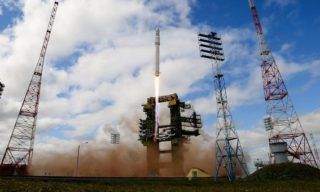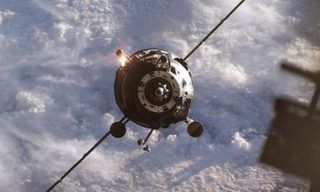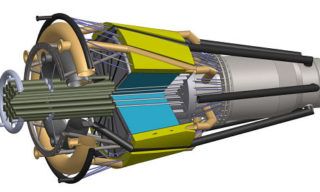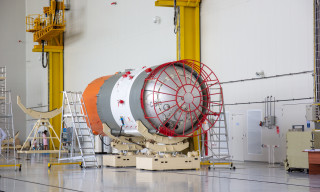In order to form ballistic conditions prior to the Soyuz MS-19 crewed vehicle launch and docking, as well as undocking and landing of the Soyuz MS-18 spacecraft, the specialists of the Russian Mission Control Center will correct the orbital altitude of the International Space Station.
According to the TsNIIMash Mission Control Center (part of Roscosmos) ballistic and navigation support service preliminary data, on August 19, 2021 at 04:04 UTC, the Zvezda Service Module engines will be fired for 47 seconds, giving the station an impulse of 0.67 m/s. After this maneuver, the average altitude of the ISS should increase by 1.2 km reaching 420.84 km.
Currently, the International Space Station crew consists of the 65th long-term expedition members: Roscosmos cosmonauts Oleg Novitskiy and Pyotr Dubrov and NASA astronaut Mark Vande Hei, who arrived on April 9, 2021 on the Soyuz MS-18 crewed spacecraft, as well as Crew Dragon crew members: NASA astronauts Shane Kimbrow and Megan MacArthur, ESA astronaut Thomas Pesquet and Japan Aerospace Exploration Agency astronaut Akihiko Hoshide.



















